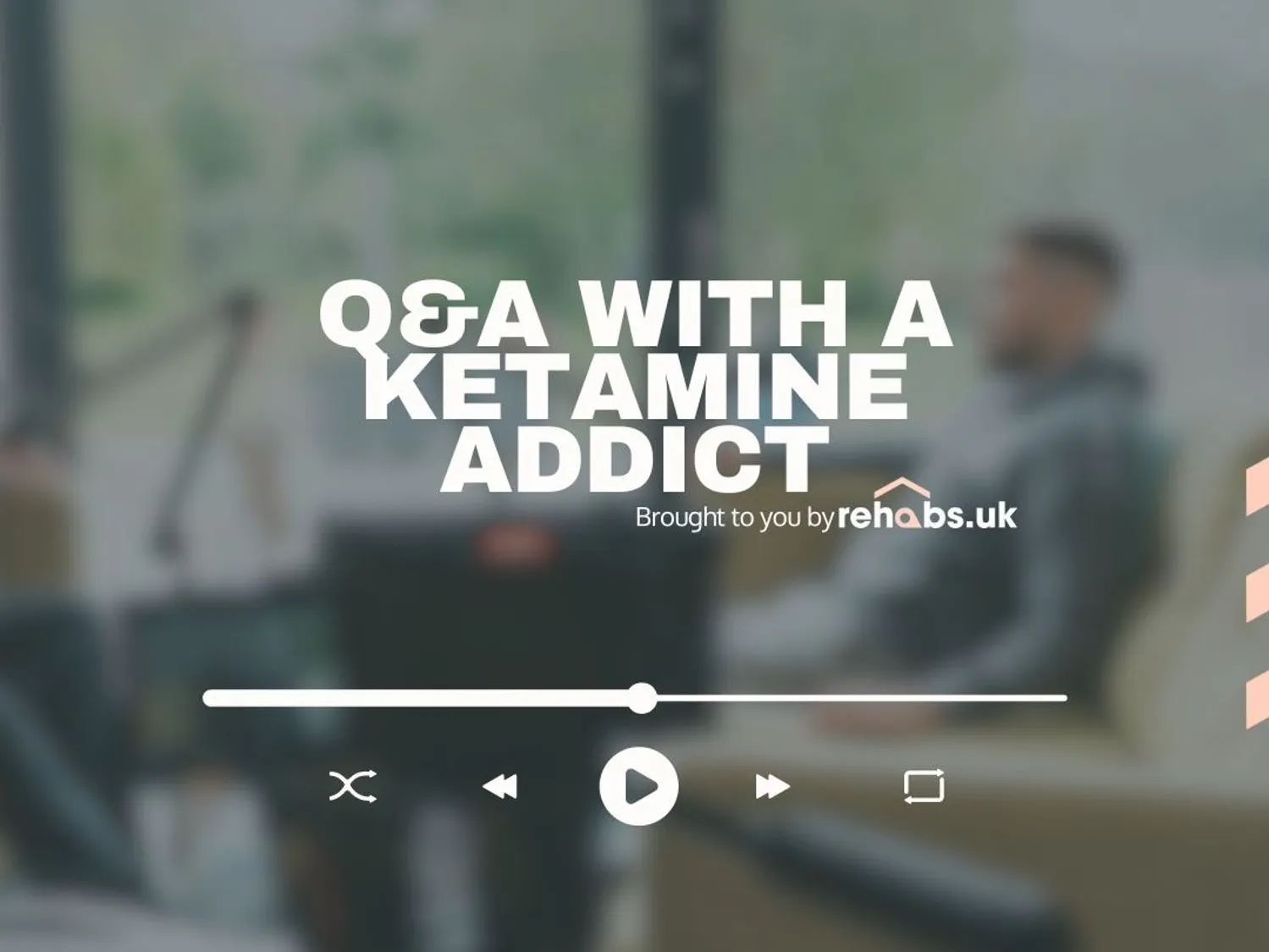Ketamine addiction is a complex issue and overcoming it takes more than strong willpower. Repeated drug use leads to changes in the brain that challenge self-control.
Drugs, like ketamine, affect the brain’s reward system. They create a feeling of euphoria by flooding the brain with dopamine. Surges of dopamine reinforce pleasurable behaviours, thereby encouraging repetition of the behaviour, even if the activity is unhealthy. Ketamine is a corrosive drug which impacts the bladder significantly and many regular users will experience "Ket cramps" as well as potential irreversible bladder issues. It has also been associated with chemsex for its dissociative and euphoric effects, which can enhance sexual experiences by reducing inhibitions and increasing sensory pleasure. However, its use can also lead to disorientation, memory loss, and risky behaviours, raising concerns about consent and sexual safety.
Is Ketamine physically addictive?
Ketamine is generally not considered to be physically addictive in the same way as substances like opioids or alcohol. However, it can lead to psychological dependence in some users. While physical dependence involves the body adapting to a drug and experiencing withdrawal symptoms when use stops, psychological dependence involves craving the drug and prioritizing its use over other activities.
You can listen to how Ketamine destroyed this young persons life on our Altered Attitudes podcast.
Various treatments are available for Ketamine addiction, including residential rehab programmes and home-based medically assisted withdrawal protocols. These approaches may also involve medications that support and enhance bladder and kidney function.
To find out which treatment path is the most suitable for you or your loved one contact our Treatment Advisors for a free assessment.


The drug tends to act quickly but generally, doesn’t last for an extended period of time. This makes it an ideal party drug and it is particularly prevalent on the club scene.
At high doses, ketamine can make the user feel as though they’re having a near-death experience. In others, however, the drug can induce a state of bliss, which makes it incredibly appealing and open to abuse. People can become addicted to this high and will keep taking ketamine regardless of the associated risks of use.
Regular use can lead to tolerance. To get the same effects as before, users will resort to consuming more and more.
While Ketamine may not be as physically addictive as some other substances, frequent use, particularly in a recreational context, can result in psychological dependence. Users might experience a strong compulsion to keep using Ketamine to achieve its mind-altering and numbing effects.
This then is compounded by how the body can develop a tolerance to Ketamine. This means that you need to take more and more Ketamine to have the same effect over time, amplifying the negative effects. It may also lead to users feeling uncomfortable or 'down' when not using Ketamine.
When in such a situation, it is highly recommended to undergo Ketamine detox treatment/medically assisted withdrawal protocols which may also include medications that support and enhance bladder and kidney function.
From experimentation to full-blown addiction, what causes someone to develop a drug dependency? Ketamine addiction can be the result of a combination of different factors; some of which may be beyond your control.
Environmental Factors
Spending time around people who abuse drugs can be influential. Parental guidance also plays a big part in the likelihood of someone developing an addiction. Children who are exposed to drug abuse at a young age are more at risk of developing their own problems.
Peer pressure can result in recreational drug use, particularly when exposed to the party scene. Teens may be especially prone to engaging in risky behaviours, as the areas in their brains that control judgement and self-control are still developing.
Psychological Factors
Different psychological factors can increase the risk of substance misuse. Drugs are often used to suppress emotional stress and relieve the symptoms of a range of mental health issues, from depression to anxiety. Repeatedly turning to ketamine to ease emotional pain or trauma increases tolerance. Over time, self-medicating in this way can become habitual and co-occur with a mental health disorder.
Genetic Predisposition
While some people may be able to use ketamine recreationally, others will feel a strong impulse to consume it to excess. Drugs, such as ketamine, can induce feelings of pleasure which trigger the brain’s reward centre and encourage repetition of the behaviour.
Neuroscience has shown that people have varying levels of ability and brain function to control impulsive urges. If these genes are passed down through generations, family members are more prone to developing drug problems.
Changes in Brain Chemistry
Repeated use of ketamine can lead to changes in the brain that challenge self-control.
Over time, the brain’s reward system becomes less responsive to ketamine. This effect is known as tolerance. The high felt initially becomes much less intense and you may need to take more of the drug to try and achieve the same feeling.
Long-term ketamine use affects the brain’s chemical systems and functions.
Ketamine misuse can change the way you look, act and feel. Some of these signs are evident, while others may be hidden or occur gradually.
Addiction tends to get worse over time. If identified and treated early, it may be possible to avoid the major consequences of the disease. Spotting the early warning signs is crucial and is the first step to getting help.
Physical Symptoms
- Irregular sleeping patterns or difficulty falling asleep
- Exhibiting signs of irritability and mood swings
- Auditory or visual hallucinations
- Confusion
- Fear or paranoia
- Distorted perception of space, time and reality
- Slurred speech
- Redness of the skin
- Stomach cramps
- Bladder problems
Behavioural Symptoms
- Shifts in social circles; someone with a drug problem may choose to surround themselves with others who abuse drugs
- Avoiding contact with loved ones
- Repeated lying, dishonesty or deceit
- Poor performance at work or school
- Legal issues as a consequence of drug use
- Decreased participation in activities or hobbies
- Self-isolation and secretive behaviour
- Neglecting both family and financial responsibilities
Despite the terms often being used interchangeably, there are distinctions. The term abuse means you are using ketamine in a dangerous manner. This implies your drug use is having a negative impact on your life and normal activities.
While abuse is thought to be less severe than addiction, in reality, long-term use of controlled drugs can be equally harmful to your health. Regular drug abuse is also more likely to lead to addiction.
The term addiction usually refers to a physical dependence but it can also include a psychological one.
While the symptoms of ketamine withdrawal are less severe than those associated with other drugs, a psychological dependence is often evident and equally alarming. An inability to refrain from using ketamine is the first symptom of addiction.









